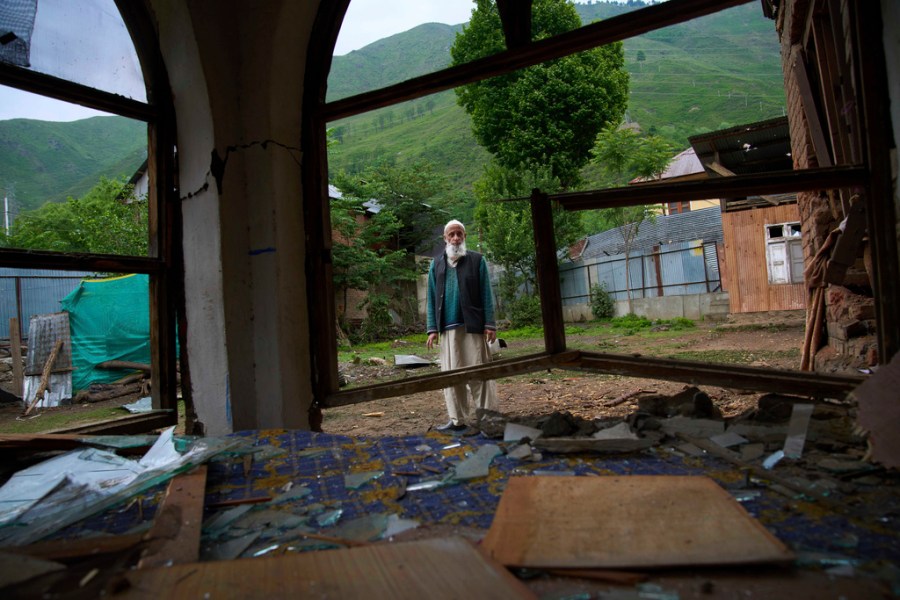
On Apr. 22, in the valley of Pahalgam, where newlyweds and vacationing families were capturing moments of joy against the backdrop of another Indian summer, sudden barbaric violence shattered the calm as four terrorists sponsored and supported by Pakistan mercilessly executed 26 innocents.
They tore apart families — husbands from wives, siblings from one another, parents from their children — executing them with chilling precision.
Adding to the horror, the perpetrators sought to infuse their carnage with a sectarian veneer, demanding victims declare their religious affiliations. This attempt to communalize the atrocity was thwarted by an act of profound courage — a local Kashmiri Muslim, in defiance of the terrorists’ divisive intent, sacrificed his life to shield the tourists.
This brutal act of terror only fills up the catalogue of terrorist attacks sponsored by Pakistan against India. Reasi in 2024, Pulwama in 2019, Uri and Pathankot attacks in 2016 and the 2008 siege of Mumbai — where 166 lives, including six Americans, were killed — form a grim list that defies comprehension.
Terror in Pahalgam brings another spotlight on the nature of the Pakistani state and its parentage of syndicate of terrorist proxies operating from its soil. Pakistan prides itself in harboring and defending proscribed terrorist groups like Jaish-e-Mohammed and Lashkar-e-Tayyiba, and their front organizations like the Resistance Front which claimed responsibility for the Pahalgam attack.
While Pakistan leaders’ posture on the global stage, proclaiming victimhood and demanding joint investigations to deflect allegations of complicity, they simultaneously shelter and embolden terrorist figures at home. It is incredible how well their strategy of hoodwinking and denial has worked for them.
It worked for Pakistan when they sheltered Osama bin Laden. It worked for them when they knowingly and falsely declared dead 9/11 mastermind Khalid Sheikh Mohammed and Sajid Mir, the man behind the Mumbai attacks. It worked for them when they orchestrated the release of Ahmed Saeed Omar Sheikh, a terrorist India was forced to release in a hostage exchange, who went on to murder Daniel Pearl. And sadly they continue to persist with it.
The recurrent pattern is unmistakable: Whenever inconvenient truths surface regarding Pakistan’s entanglement with terrorist organizations, its officials deftly concede a measure of historical complicity, thereby deflecting scrutiny from contemporary accusations. This rhetorical sleight-of-hand, a calculated maneuver, consistently yields dividends, shielding the state from accountability.
History, as the adage warns, condemns the ignorant to its repetition. From its inception, the Pakistani state — most notably its military, which has systematically prevented any elected prime minister from completing a full term — has fixated on the territorial conquest of Kashmir, purely on religious grounds. In moments of domestic turmoil — be it political missteps, economic collapse, or ideological discord — the military apparatus invariably redirects the national gaze toward Kashmir, conjuring the specter of an existential Indian threat. This manufactured bogeyman serves the singular purpose of subduing the Pakistani populace, ensuring their acquiescence to the military’s agenda.
More than 40,000 people, civilian and security forces have lost their lives in India due to terrorism. As a respected and responsible member of the comity of nations, India has never sought a violent solution to any conflict. But we cannot choose to not act when terrorists unleash such horror.
We do not stand alone today when we say there is zero tolerance for terrorism. After the terror attack, India undertook measured and non-escalatory strikes against these terror apparatuses operating in Pakistan.
In response the Pakistan Army, in its usual war mongering manner, has sought to escalate the situation by carrying out strikes against Indian civilian and military infrastructure. It has chosen to stand with the terrorists.
India does not seek an escalation. Our war is against terrorism. It is not against the people of Pakistan.
Vinay Kwatra is India’s ambassador to the U.S. and its former foreign secretary.

